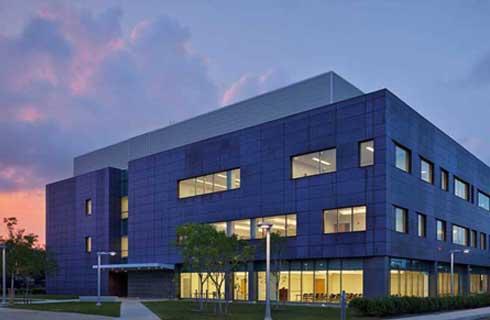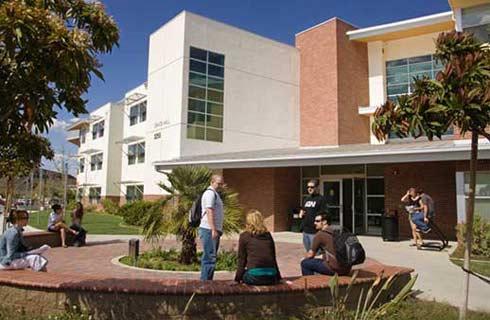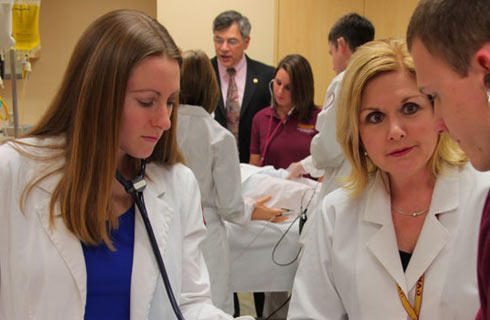- IDP China>
- 课程库>
- 商科与管理>
- 数学与统计学>
- 统计>
- Honours Bachelor of Science in Statistical Science (Methods and Practice) (Specialist) - St. George
荣誉统计科学学士学位(专家)
Honours Bachelor of Science in Statistical Science (Methods and Practice) (Specialist) - St. George

学历文凭
Bachelor Degree with Honours

专业院系
Department of Statistical Sciences

开学时间

课程时长

课程学费

国际学生入学条件
International Baccalaureate Diploma, with English HL or SL.
International Baccalaureate (IB) English - The minimum requirement is a score of at least 4 (predicted or final) in Higher or Standard Level English A: Literature or English A: Language and Literature. HL English B is not acceptable.
IELTS - The minimum requirement is an overall band of 6.5, with no band below 6.0.
TOEFL IBT - The minimum requirement is a total score of 89 with 22 on the Writing section.
IDP—雅思考试联合主办方

雅思考试总分
6.5
了解更多
雅思考试指南
- 雅思总分:6.5
- 托福网考总分:89
- 托福笔试总分:160
- 其他语言考试:Pearson Test of English (PTE) Academic - Overall score of 65 with no part below 60.
CRICOS代码:
申请截止日期: 请与IDP顾问联系以获取详细信息。
课程简介
Statistical Science is the science of learning from data. Statistical science plays a large role in data science, which broadly encompasses computational and statistical aspects of managing and learning from large and complex datasets. Statistical theory and methodology have applications in almost all areas of science, social science, public health, medicine, engineering, finance, technology, business, government and industry. Statisticians and data scientists are involved in solving problems as diverse as understanding the health risk of climate change, predicting the path of forest fires, understanding the role of genetics in human health, and creating a better search engine. New ways of collecting, organizing, visualizing, and analyzing data are increasingly driving progress in all fields and have created demand for people with data expertise.<br>The Department of Statistical Sciences offers specialist, major, and minor programs in Statistics and a specialist program in Data Science and a specialist and a major program in Actuarial Science (please refer to the Actuarial Science section of the academic calendar for more information on Actuarial Science programs). All Statistics programs offer training in statistical methods, theory, computation, and communication, as well as an understanding of the role of statistical science to solve problems in a variety of contexts. The specialist program in Statistical Science: Theory and Methods emphasizes probability and statistical theory as underlying mathematical frameworks for data analysis. The specialist program in Statistical Science: Methods and Practice has greater emphasis on collaborative statistical practice. Students in this program combine their study in statistics with a focus in a discipline that relies on statistical methods. The specialist program in Data Science is offered jointly with the Department of Computer Science. Students in this program acquire expertise in statistical reasoning and methods, in the design and analysis of algorithms and data structures for handling big data, in best practices for software design, and in machine learning. The major program in Statistics offers the most flexibility in the choice of courses. This program gives students a broad understanding of the methods and computational and communication skills appropriate for effective statistical problem solving. The minor program in Statistics is designed to provide students with some exposure and skills in statistical methods which is intended to complement programs in other disciplines that involve quantitative research.<br>Statistical Science encompasses methods and tools for obtaining knowledge from data and for understanding the uncertainty associated with this knowledge. The purposes of the undergraduate programs are to: (1) equip students with a general framework for obtaining knowledge from data, (2) give students skills that they are able to flexibly apply to a variety of problems, and (3) to provide students with the ability to learn new methods as needs, data sources, and technology change.
相关申请
 预科
预科 奖学金
奖学金 实习机会
实习机会 在校学习
在校学习 跨境学习
跨境学习 校园授课-线上开始
校园授课-线上开始 在线/远程学习
在线/远程学习
学校排名

世界排名21
数据源:泰晤士高等教育世界大学排名
关于多伦多大学

多伦多大学(University of Toronto),始建于1827年,坐落在加拿大的第一大城市多伦多,是加拿大的一所顶尖学府,亦为加拿大传统四大校之一。安大略省政府及议会环绕在市中心的女王公园四周,现已发展成为一所“一主两翼”格局的世界知名研究性大学--坐落于市中心的圣乔治校区(St. George),历史最为悠久,与3个更小的大学联盟并有享有七大学院制,与十座教学医院有着密切关系;东西向延伸至世嘉堡与密西沙加,UTSC有着乡村般的风光,风景别致,搭乘TTC一小时路程;UTM则是在西边,有校车往返。在学术及研究方面,多伦多大学一直处于领先地位。其经费、捐款、国家教授奖项、研究出版规模和藏书量皆为加拿大之首。多伦多大学出版社在加拿大乃至全北美影响深远。实行独立书院制的学府,荣获诺贝尔奖的教授人数是加拿大最多的。维多利亚学院是其最富有的学院之一 提供更多奖学金和相关设施。多伦多大学亦为美国大学协会中仅有的两所非美国学府之一。多伦多大学每年发表的科研论文数量在北美仅次于哈佛大学,引用数量位居世界前五。主要贡献:干细胞及胰岛素的发现,电子起搏器、多点触摸技术、电子显微镜、抗荷服的发明和发展,NP完全理论,以及发现首个经核证的黑洞。
本校相关课程
其他相关课程

Bachelor of Science in Mathematics - Statistics
 伊利诺伊州立大学-INTO USA
伊利诺伊州立大学-INTO USA学历文凭
Bachelor Degree
开学日期
课程费用总额


数学哲学博士-统计
 南佛罗里达大学
南佛罗里达大学学历文凭
Ph.D.
开学日期
课程费用总额


应用统计学哲学博士
 圭尔夫大学
圭尔夫大学学历文凭
Ph.D.
开学日期
课程费用总额


Master of Science in Applied Statistics
 德保罗大学
德保罗大学学历文凭
Masters Degree
开学日期
课程费用总额


数理统计学士(荣誉学位)-统计
 新不伦瑞克大学
新不伦瑞克大学学历文凭
Bachelor Degree with Honours
开学日期
课程费用总额


Bachelor of Science in Statistics
 华盛顿大学
华盛顿大学泰晤士高等教育世界大学排名:25
学历文凭
Bachelor Degree
开学日期
课程费用总额
































